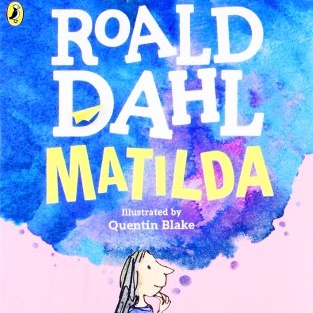
News

Art and anti-Semitism – where to draw the line?
TALI FEINBERG
In a letter to the Chev that was shared with the SA Jewish Report, Guy Hoffman wrote: “Roald Dahl was a rabid anti-Semite and Nazi sympathiser. In my view, no Jewish organisation should associate with him and his work in any way. Why has the Chev chosen this particular musical to associate itself with? I am somewhat taken aback.”
While the Chev is planning to go ahead with the show, it raises the question of how closely Jews should associate themselves with artists who are anti-Semitic.
Even the great Steven Spielberg did not know about Dahl’s hate speech when he directed a film adapted from the book The BFG in 2016.
At a press conference during the Cannes Film Festival in France, Hollywood’s most accomplished Jewish filmmaker said he “wasn’t aware of any of Roald Dahl’s personal stories” before shooting The BFG for Walt Disney Pictures. Spielberg later told The New York Times he had “no excuse” for not researching Dahl’s public statements.
These include a 1983 interview with British magazine The Statesman, in which Dahl said: “There is a trait in the Jewish character that does provoke animosity, maybe it’s a kind of lack of generosity towards non-Jews. I mean, there is always a reason why anti-anything crops up anywhere; even a stinker like Hitler didn’t just pick on them for no reason.”
In the same interview, he blamed Jews for being victims during the Holocaust, saying: “I mean, if you and I were in a line moving towards what we knew were gas chambers, I’d rather have a go at taking one of the guards with me; but they were always submissive.”
During the 1982 Lebanon War, Dahl accused Israel of “bestiality”, and said the IDF behaved “like Hitler and Himmler” in its aggressive treatment of terrorists. In an 1983 article in Britain’s Literary Review, Dahl posed the question, “Must Israel, like Germany, be brought to her knees before she learns how to behave in this world?”
“I am certainly anti-Israel, and I have become anti-Semitic,” Dahl told The Independent in 1990, eight months before his death.
Some people, however, believe that using Dahl’s work to raise funds for Jewish welfare is an empowering way to stand up to anti-Semitism. Certainly, the fact that his books are present in classrooms and libraries means he simply can’t be avoided. And if Jews were to boycott anti-Semitic artists, playwrights and authors, should they also avoid the works of Shakespeare, whose Merchant of Venice has been described as profoundly anti-Semitic?
“I can empathise with the feelings with those members of the community who have voiced concerns,” says United Herzlia Schools Curriculum Advisor Mark Helfrich. “When I first became Principal at Herzlia Constantia many years ago, I voiced similar concerns when I questioned our Grade 3s spending a term on a Roald Dahl theme which, needless to say, all of the kids adored – this same theme is now used at Grade 3 level across the Herzlia system.
“To be honest, I am still uncertain about this, but popular culture certainly argues otherwise, and our pupils are all shown the various movies at home and taken to the theatre to watch the annual stage productions.
“Of course, if Merchant of Venice was a matric setwork, which it has been, we would have no choice but to teach it – of course, dealing with the anti-Semitism in our lessons.
Tali Nates, the director of the Johannesburg Holocaust & Genocide Centre, explains that she “sees everything as an opportunity for education”.
“We could look at a story like Matilda, which is about inclusion and acceptance, and say to children, isn’t it interesting that this author wrote about this message but had anti-Semitic views? People are complex beings, for example, some rescuers in the Holocaust became betrayers. We also need to see that writers are a product of their time, when anti-Semitism was acceptable and people did not question it. Shakespeare wrote at a time of expulsions and blood libels, and we can learn from that.”
Asked if Jews should avoid artists who are known to be anti-Semitic, Richard Mendelsohn, the Emeritus Associate Professor of Historical Studies at UCT and an expert in film and history, says: “I don’t think we can. The most famous case is, of course, Richard Wagner. His views on Jews are quite detestable and his music was adored by Adolf Hitler, yet should we forego experiencing his sublime music? I for one as a lover of Wagnerian opera would not. Likewise, I read all of Dahl’s great children’s stories to my sons despite being fully aware (unlike Steven Spielberg) of Dahl’s noxious views.
Ronnie Gotkin, the director of Hebrew Studies at Herzlia Schools and a literature expert, says he is not sure he would be happy to have the music of Richard Wagner played at the school, “Perhaps because of the particularly vicious nature of his anti-Semitism (and indeed of his daughter and son-in-law, the infamous Houston Stewart Chamberlain), and because his views were later used by Hitler and the Nazis.”
“Unfortunately, the stereotype of the rapacious Jew is a trope throughout English literature. This is a sad fact,” Gotkin says. “So, the question really is whether one separates the art from the artist and in general, I would argue that the art stands for itself – except of course where the particular piece is in itself anti-Semitic, in which case it is tainted. Yes, Roald Dahl was indeed an anti-Semite – but that is expressed in his personal views, not in his creative writing. If we can’t read Matilda, then we also can’t read A Tale of Two Cities, or Hamlet.”




